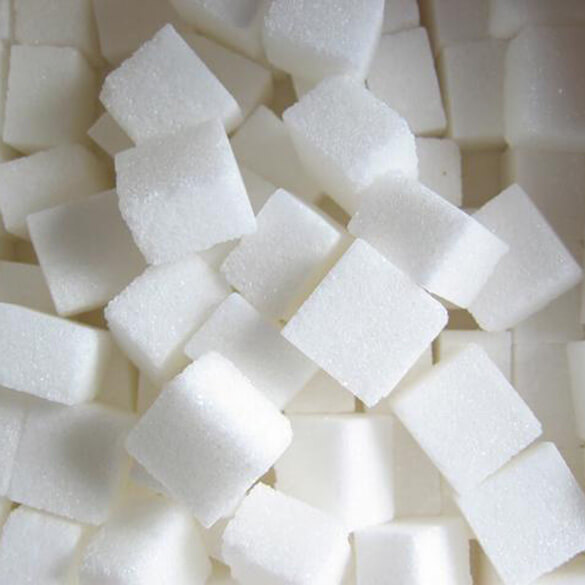Breaking Your Addiction to Sugar: It Might Seem Impossible, But It Isn't

First, let me explain what I mean by sugar, as there are many different types. The proper term is carbohydrates which is sometimes divided into simple and complex carbohydrates. Simple means that the carbohydrates are in small molecular pieces, therefore very easy for your body to absorb. Complex carbohydrates are in large molecular pieces, which means your body first needs to break these down before they can be absorbed. The more complex a carbohydrate is, the slower it will release energy, which is good (read below to find out why).
Anything in your food that ends in the letters ‘-ose' means it is a type of carbohydrate — glucose, fructose, lactose, galactose, and maltose. For example, in milk there is lactose, which means this is a type of carbohydrate. Fructose is a type of carbohydrate found in fruit, legumes, and some vegetables. And don't be fooled by snacks like chips that are salty as they too can be high in simple carbohydrates. Sucrose is simple table sugar, which is about as simple as a carbohydrate can be. This means that sucrose is absorbed by the body and into the blood stream very quickly. Sucrose is probably the worst type of carbohydrate you can consume as it relates to your health.
When you eat sugar and other simple carbohydrates (e.g. chocolates, chips, ice cream) a series of steps take place in your body.
- Insulin levels rise drastically to cause your cells to absorb the sugars you just ate.
- Cells absorb the sugars from the blood stream.
- Some of that sugar will be used for metabolic functions.
- Excess sugar will be converted to fat storage resulting in weight gain.
- Soon, blood sugar levels drop.
- Energy levels fall drastically.
- Low blood sugar levels, and low energy levels, cause you to crave more sugar.
- And the cycle repeats.
Addiction to sugar is caused by the ‘feel good' hormones in your brain and the desire to keep these hormones high along with the body's need to keep energy levels high.
Complex carbohydrates have the same affect, but at a much slower rate. As such the the insulin highs and lows that simple carbohydrates cause don't occur. Without the consumption of simple carbohydrates, sugar and insulin levels will remain balanced and energy levels will be normal and constant.
To break the sugar addiction, which is possible but not necessarily easy, requires some diet modifications and some dedication. The good news is that once you've broken the cycle it will be easy to maintain just by avoiding a return to bad habits.
Instead of concerning yourself with what you need to stop eating, start thinking and planning about what you ‘should' be eating. In other words, start some good habits instead of becoming so concerned with breaking bad ones. Replacing bad habits with good ones is much easier than just stopping bad habits.
For example, eat a high protein breakfast. Some nuts, maybe an egg or two, maybe a piece of cheese. These foods are extremely low in carbohydrates, therefore they will not cause the insulin effect described above. Or keep your lunches and dinners similar to they way they are now, but start including some vegetables.
I suggest you don't remove anything from your diet. However, you should eat the ‘good' stuff first. For example, at lunch, eat a salad and a bit of chicken first. Then, if you still crave some fries, have some. If you do this it is quite possible that you will eventually stop craving the fries. At first you will probably continue to order them, but this will be purely out of habit rather than an actual desire. Try this technique to break the habit… When you sit down at the restaurant order only the salad and the chicken. Then, after you eat the salad and the chicken, order the fries if you still want them. With time, you will realize that you don't need the fries. Do this with all your meals, whether eating at home or eating out.
Once you are in the habit of eating healthy food, then slowly start reducing your consumption of bad food which will be much easier if you follow my recommendation above.
Here's a recap of the process along with some additional tips:
- Don't cut any foods drastically.
- Start good habits before trying to eliminate bad ones.
- Eat the good food first.
- Avoid not eating to the point of being hungry because this will cause you to reach for easy access junk food.
- Drink plenty of water, especially before meals, to make you feel a bit more full before you sit down.
- Occasionally, if you crave something, indulge, but only a little bit. If you try to fight cravings eventually you will lose.
- Learn to reduce stress, as stress may cause over-eating.
- Get plenty of rest, as lack of sleep is a form of stress.
- Start exercising. Nothing drastic, just go for walks, it will make you feel better.
- If you are trying to lose weight, first fix your diet. Get into good eating habits, then investigate weight loss options.
One more thing. Start educating yourself. Read about nutrition. Learn everything you can. There is some conflicting information out there, but conflicting information is better than no information because at least then you can draw your own conclusions and find out what works for you.



Leave a Reply